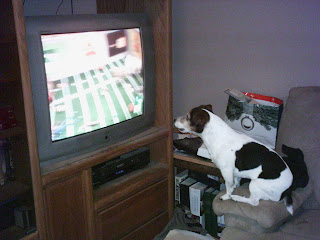Apparently, people all over the country are confused about what name to call the evening meal. I know this because nearly every day, at least one person surfs into this blog having googled the terms "dinner" and "supper." Being the truely Southern country girl that I am, I wish to offer my expert, educated opinion, which should clear up the matter definitively.
Here in my neck of the woods, the meal eaten in the evening is always called supper. If you have moved here from some other area, you should be aware that when someone invites you to supper, you will be eating sometime around 6 p.m. It doesn't matter what type of food you eat in the evening, whether a sandwich, steak, soup, salad, chicken and dumplings, pizza, or tacos; the meal you eat in the evening is always supper. (Sometimes I like to eat breakfast food such as biscuits and gravy and eggs and grits for supper, but I still call it supper.)
So, then, what is dinner? Now here's where it can become confusing, but it really is simple. Dinner is eaten around noontime. Always. However, sometimes we don't eat dinner; instead some days we eat lunch. Here's the difference: Dinner consists of a hot meal that is served on a plate not made of paper. However, if you can hold it in your hand, and/or it comes wrapped in paper or sits on a paper plate it's lunch. A hamburger served hot on a plate is still lunch because you typically pick it up with your hands. Most of what you could eat in a fast food restaurant would qualify as lunch. Dinner is a heavier, more substantial meal than lunch, and it tends to make you sleepier than lunch does. Dinner also tastes better than lunch. It's more satisfiying and more memorable. No one talks about Grandma's Sunday lunches, but they sure do remember her Sunday dinners.
Today's typical adult works outside the home, and usually eats lunch instead of dinner for the noontime meal. However, some working people do eat dinner. How does one know whether he or she is eating dinner or lunch? Some foods could fall into either the lunch or dinner category, for example, say a loaded baked potato. If said potato is served on a plate (and I don't mean a paper plate), then I would call it dinner, but if it comes from a drive-thru barbeque stand, then it's lunch. Soup and salad are some other problematic foods. Usually soup and salad are lunch. However, if the soup is really hearty and is served with some bread, then I'd probably call it dinner. If the salad is just some greenery, then it's lunch, but if it's one of those that's loaded with meat, then I might call that dinner. If the soup and salad are eaten at the same time, then in my book, that qualifies as dinner, but only if both are served in real plates and bowls, not paper.
I don't know what it's like in other parts of the country, but most native Southerners that I know adhere to these definitions without really giving it much thought. These aren't definitions that we were taught, but ones that we just sort of learned through traditional use. However, the line that tends to divide the language of food is being blurred, mainly because of the migration of people from one part of the country to another, and because of television watching. As we are exposed to new and different people with their different ways of speaking, the little things that make us unique, such as our different names for the same thing, are gradually falling by the wayside.
No matter where I go, however, I will never eat dinner after dark.

